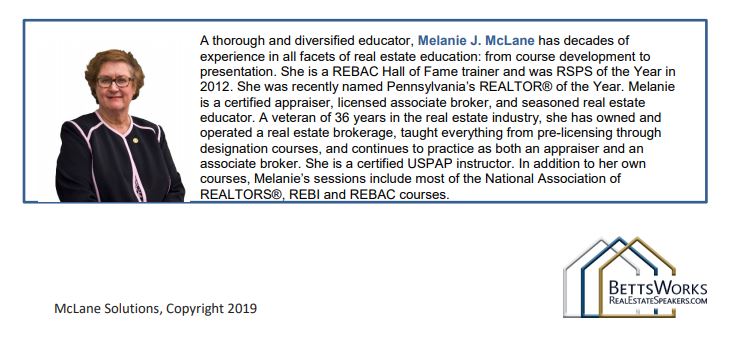Procuring cause is one of the most hotly debated, and misunderstood topics REALTORS® encounter, especially when they decide to take a commission dispute to arbitration. Let’s note at the beginning that NAR’s preferred method of dispute resolution is mediation, and I believe the parties should always try earnestly to mediate. I have seldom seen a case where both parties had all the facts… and the facts matter.
The definitions usually used for procuring cause are the ponderous one from Black’s Law Dictionary: “The proximate cause; the cause originating a series of events which, without break in their continuity, result in the accomplishment of the prime object.” The other definition I like to use is the folksy one from the Arkansas Supreme Court: “It’s not the squirrel that gathers the nuts, it’s the one that shakes the tree.” NAR in their guidelines, recommends that first, you should determine if you have ‘an unbroken chain of events culminating with a sale.’ What is an unbroken chain of events? It usually includes these things:
- Introducing the prospect to the property
- Showing the property
- Getting questions answered
- Writing a contract
- Negotiating the contract
- Shepherding the sale to closing while addressing problems which arise along the way
- Completing the transaction with a closing
So, the first thing to ask is whether you have that. Did you have a break in your contact with the prospect? Did you cause estrangement with the client (they wanted to fire you for a specific reason)? Did you abandon your client? If you have an unbroken chain of events, that is positive and you can generally move forward.
But what if someone or something got between you and your client? Suppose, for example, an agent had a client who went to a competitor’s Open House, identified themselves as working with you, but were told by the other agent “If you don’t buy this house through me, you’ll lose it.” Your weak points here are that you didn’t introduce the client to this house, you didn’t show it, you didn’t answer questions, and you didn’t write the contract. On the other hand, the competing agent is not only violating the Code of Ethics (Article 16) but could be seen as doing ‘tortious interference.’ Tortious interference is interfering with someone’s contractual or business relationship.
Here’s where things get very interesting. Recognize that you can be legally entitled to a commission you are not ethically entitled to, and you can be ethically entitled to a commission you are not legally entitled to. In fact, NAR says in their guidelines that the existence of a contract is not, in and of itself, a determinant of procuring cause, it is just an indication of procuring cause.
So, in the example above, if that agent was not just ‘working with’ that buyer, but had a signed, exclusive agency relationship, he is entitled to recover a commission. On the other hand, if this went to an arbitration hearing, the panel might well conclude that the agent at the Open House, despite behaving badly, is the procuring cause because they followed all the steps for an unbroken chain of events.
In real life, we have more issues with agents who do not have a signed, exclusive agreement with their buyers—they are relying on ‘loyalty’ and ‘they like me’ and ‘they wouldn’t do that to me.’ Foolish ideas! These are the buyers who turn around and either buy from a FSBO, or from another agent, and send the original agent a “Thank-You” card with a gift card to Panera tucked inside it! In the scenario outlined above, that agent is not going to be able to collect a commission legally—or through arbitration. This is all because they wouldn’t sit down and explain to the buyer how they work, how they get paid, and how they need a contract.
For today, here are your take-away ideas:
• Can you meet the ‘unbroken chain of events’ list?
• Did you cause estrangement?
• Did you abandon your client?
• Did you make certain your client understood how you and the real estate business work?
Register for the November 5th Class!

